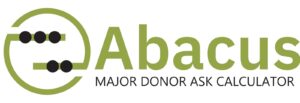You may be familiar with the old adage about the word “assume”… that it makes a “donkey’s rear end” of “u” and “me.” And this is especially true when it comes to major gift fundraising. The first lessons of Philanthropy 101 include knowing your donors and their philanthropic aspirations. It takes significant time, effort, and research to gain this understanding. Although sometimes tempting, it is an enormous and often disastrous mistake to skip the “getting to know you” phase and base decisions and strategies on assumptions.
During the most recent PLAN-MGO training event, CopleyRaff’s semi-annual gathering of highly motivated, talented, and professionalgift officers, issues concerning donor information were at the forefront of much of the four day conversation. Participants noted that they routinely needed to know things about their donors and prospects that couldn’t easily be unearthed via electronic research tools or the web. Many were searching for strategies and best practices for assessing the depth of the donor’s interest in their organization, or a specific aspect of the organization; the scope and nature of their other philanthropic interests; their attitudes surrounding their children’s involvement in philanthropy; and their long term visions for their giving priorities and investments, among other essential questions.
It is conceivable that viable answers to some of these inquires could be partially patched together from snippets of information from WealthEngine, Guidestar, or other online subscriptions. However, the truth of the matter is that only the donors themselves can provide the true, accurate information behind these questions that truly matter. So it all comes down to this, and it’s pretty simple. When the time is right, and the relationship encompasses key essentials including mutual trust and interest, ask them.
There are many ways to create the right environment and tone for these deep discovery conversations. Here are three tried and true tactics to help frame these exchanges:
- Given that there is already a baseline level of comfort, give yourself permission to ask the donor some probing questions. First offering some personal information that might relate to your discovery interests is one way of initiating this type of conversation.
- Create rapport and acceptance through physical mirroring. It is human nature to reflect the behavior of others. For instance, when someone smiles at you, it is almost impossible to not smile back. When someone reaches out to shake your hand, you follow suit. When someone crosses or uncrosses their legs while seated, do the same.
- Promote closeness through verbal reciprocity. If someone introduces themselves using both their first and last names, respond with both of your names as well. When someone tells you personal information about a child or part of their life, respond in kind. All good relationships, where rapport is strong, involve reciprocity. You give something and you receive something in return.
There is no magic here. When you need information from your donor, information that will help you to construct a respectful solicitation strategy and request amount…all you need to do is ask for it! The vast majority of people love to talk about themselves and will feel important and honored by your sincere and respectful attention.
Your takes:
- Make no assumptions when it comes to donor solicitation: to construct the most respectful gift strategy, first discover pivotal information by asking for it.
- Use open ended questions, mirroring, and reciprocity in order to build real and sincere rapport with current and future donors.
- Offering personal information at the right times in a conversation creates trust and a safe environment that may encourage others to share personal information as well.
For more information about Copley Raff and its spectrum of not for profit consulting services, please see www.copleyraff.com.
Have a development, executive recruitment, or campaign strategy or management challenge? Let’s talk! Click here to connect with Rebekah Kaufman, Director of Consulting Services at CRI.



Pingback:Why NOT to Ask for a Gift --- NOT | Copley Raff
Pingback:Why NOT to Ask for a Gift — NOT | Solutions VPG